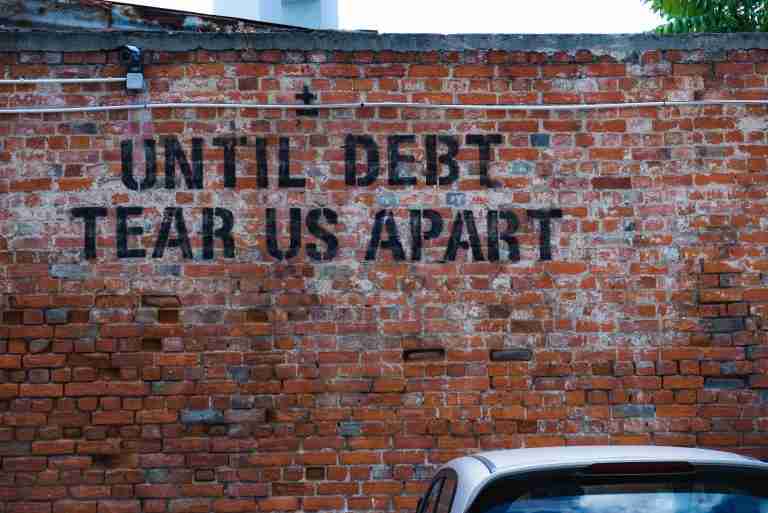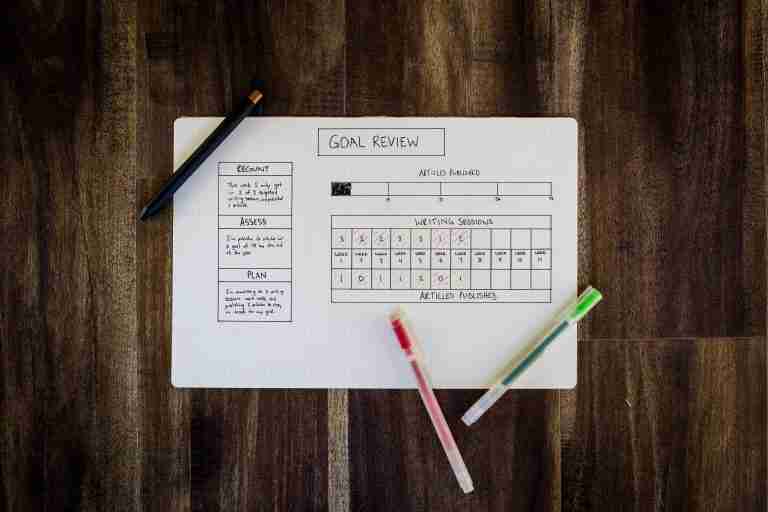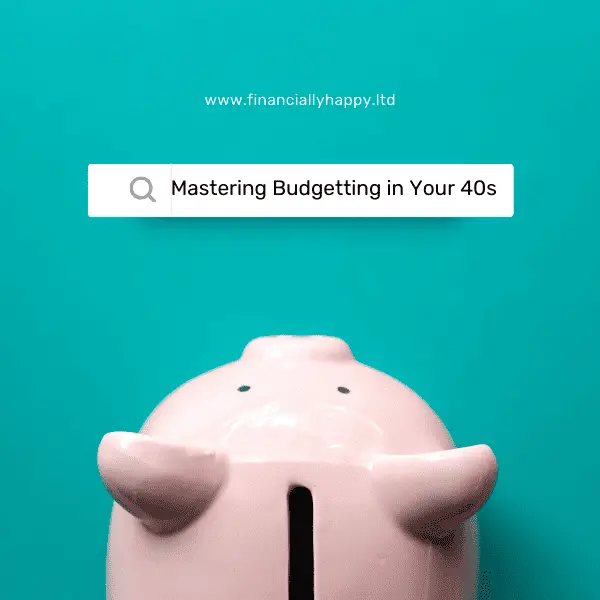Stressed about money all the time? 6 ways to stop stressing over money.
Stressed about money all the time, wondering how to deal with financial stress?
If money worries keep you awake at night, it’s probably time to take back control of your finances.
Financial anxiety can play a very damaging role in your physical and mental health, work, and private relationships.
Getting control of your money and not having your money control you, will make a massive difference in your life and stress levels.
You are not alone when it comes to feeling stressed about money. With a few simple steps, you can begin to understand what’s going on and how to make money work for you.
Read on to find 6 ways to stop stressing over money, take back control over money and reduce your financial stress.

Let apps take the strain
The first thing to do is know your numbers.
Without understanding what’s going on, you may never get to the bottom of where the leaks are.
The numbers you need to know are
- What’s your current net worth – everything you owe vs own.
- How is coming in every week, month or year
- How much are you spending every week, month, year.
- How much of your cash flow do you get to keep, i.e. leftover after all the spending.
These figures will give you your headline figures and how good, bad or ugly it looks overall.
Even if this is not a pleasant experience, it is starting to demystify what is going on.
The good news is that you don’t need to spend that much time on these activities as there are apps out there that will take a lot of the strain of this away for you.
Most of the analysis is done for you with these sorts of apps. There is a bit of set-up at the beginning and occasionally classifying new spending, but it will produce graphs and pie charts galore to show you what’s going on.
From here, you can begin to review what’s going on, spotting leaks and plugging them asap.
You might be surprised how much you are spending on utilities, going out, or food shopping.
You can then use this info to compare other places to get these services and or haggle for cheaper options.
Cheaper utilities and broadband options
Automate your accounts
The next thing to do to ease your money worries is to automate as much as you can.
Setting up direct debits for all your regular bills will take the strain out of trying to remember when they need to be paid.
You just need to make sure that the bank account they come from is always stocked with enough money to pay them.
The way to do this is to set up a bills bank account that pays regular bills.
There are a few variations of this 3 bank account system
- A current account that money is paid into
- Automatically transfer the amounts needed to your bills account
- Automatically transfer some money to your savings account
- The money left over in this account is your day-to-day spending money.
- Bills account where all your bills are paid from
- Savings account – emergency fund, holiday money etc
In this way, you get to take the strain out of what to do with your money as it’s done for you at the beginning of each month or on a date you choose.
You might want more accounts if you want to separate each thing you are saving for, whatever works for you to get your money working towards what you want now and in the future.

Build an emergency fund
An emergency fund will be a great stress reliever if you know you have enough money to ride out nearly any storm.
It’s common to hear people recommending having 3-6 months expenditure in an emergency fund.
The principal aim of an emergency fund is to prevent, mitigate or cope with a financial shock.
An emergency fund will help prevent you from going into debt to solve a problem and potentially starting a spiral of financial difficulties.
3-6 months of savings could help you deal with
- House or car repairs
- Medical expenses
- Redundancy or gaps in employment
Depending on your circumstances and area of employment, you might want a bigger or smaller emergency fund, whatever helps you sleep at night.
Start small and keep building it until you reach your desired emergency fund size.
Keep the emergency fund in a separate account if that helps keep it away from sticky fingers.
You may also want to agree with yourself or others about what constitutes an emergency and what is just poor planning.
If you forgot someone’s birthday and need a fast present, is that an emergency or a tricky situation?
Being clear on what is and is not an emergency will help keep your fund ready for a real emergency.

Deal with your debt
If you have significant debt, then you may well need to start dealing with that asap.
You can try a couple of different methods to get your debt under control.
The first is to stop digging.
- Remove the temptation to spend – get rid of sale alerts, offers and other ways that companies tempt you to spend money. Delete unsubscribe from promotions.
- Don’t go shopping online or to shops for entertainment or leisure; do something less useless instead.
- Don’t hand round with friends who spend, spend, spend.
- Trying doing things at home, eat at home, entertain at home.
- Get rid of the credit or store cards that are causing you to go further and further into debt.
Secondly, figure out how you might pay off your debts
- Always pay the minimum on all debts
- Snowball: find the smallest debt and pay it off and then move to the next.
- Avalanche: find the biggest or most expensive debt and pay that off first. Then move to the next biggest and so on
- Equal share: Pay them all with an equal amount (at least the minimum needed) until they are all paid off.
If you are in a debt crisis, then these organisations can provide free advice.
Seek help: you’re not alone
If you would like to work on transforming your knowledge, attitude and habits around money, then it might be worth undertaking some personal development through
DIY learning
- Books
- Podcasts
- YouTube Videos
Doing it with someone else like working with a financial coach
- Helping you get financially organised.
- Understand how much is enough.
- Planning to achieve more of what you want.
- How to never run out of money
Having someone do it for you like a financial advisor.
- Able to advise and sell you relevant products.

Design your own GAME Plan
A key part of worrying less about money is having a plan.
Understanding what you really want is a great way to block out all the noise of modern life and pursue what’s most important to you.
If you were to spend time figuring out your goals in every area of your life, the clarity you would gain from this might help save you a lot of time and effort.
Goals
Figuring out your goals in these areas of your life might be the key to reducing stress and improving your focus.
- Health – mind, and body
- Wealth – material things as well as savings
- Social – time for friends, family, hobbies, and interests
- Community – giving back and making a difference wherever you are.
Actions
Understanding what you want to achieve should give you a few ideas of what might need to happen.
Do you need more knowledge on a subject/s to get to where you want to be?
- How to manage your money
- How to set up a website
- How to start a business
Do you need to look at your attitude or mindset – do you have a fixed or open mindset, and how might that set free your talents and abilities to achieve what you want?
- Don’t be down on yourself; remember what you have already achieved.
- Mistakes are just painful learning events.
- The pain of discipline or the pain of regret
What habits do you currently have that are helping or not, and what new habits do you need to develop to make progress easier or quicker.
- Get up early.
- Go to bed early.
- Cut out social media.
Means
What means do you have to create more money?
- Could you manage what you have better?
- Could you get paid more?
- Could you create another source of income?
Do you have any business ideas that might cover
- What you’re good at.
- What you enjoy doing.
- What the world needs.
- What people will pay you for.
There might be gold in some of the ideas if you are able to answer all 4.
However, if you can only answer 3 or less you might find ideas that
- Make a lot of money, but you hate doing it.
- Love it but can’t make any money in it.
Execute, review and revise!
Start now; wait to get perfect later.
Start your plan to change your life.
It won’t all go smoothly, but you will be able to review what worked and what didn’t.
Then you can revise and carry on.
Little by little, achieving more of what’s important to you.
With your own GAME Plan, who knows what you might achieve
Summary Table: How to stop stressing over money
| Section | Key Takeaways | Action Steps |
|---|---|---|
| Let Apps Take the Strain | Understand your financial numbers like net worth, income, and expenses. | Use money and banking apps for tracking and analysis. |
| Automate Your Accounts | Simplify bill payments and savings. | Set up direct debits for bills and automatic transfers for savings. |
| Build an Emergency Fund | Create a financial cushion to deal with unexpected expenses. | Aim for 3-6 months of living expenses in a separate account. |
| Deal with Your Debt | Address your debt to alleviate financial stress. | Use methods like Snowball, Avalanche, or Equal Share to pay off debts. |
| Seek Help | You’re not alone; seek professional advice if needed. | Consider financial coaching or consulting a financial advisor. |
| Design Your GAME Plan | Have a comprehensive plan for your life goals. | Identify goals in health, wealth, social life, and community. Then, plan actions to achieve them. |
FAQ: Stressed about money all the time
Why does money give me anxiety?
-Not knowing whats going on with your money
-No control over what’s coming in or going out
-Fear of not knowing how much is enough
-No GAME Plan to get you from where you are to where you want to be.
How do you stop financial anxiety?
Start tracking your finances.
Understand your numbers.
Figure out how much is enough.
Start an emergency fund.
Put a plan in place to achieve more of what’s important to you.
How does money cause stress?
Uncertainty over how much is enough.
Uncertainty over the future and how your current situation leads to a good or bad outcome.
Money worries lead to physical and mental stress, lack of sleep, and worry resulting in poor decision-making, which causes further financial problems.
How to not be stressed about money?
Learning how to stress less about money is all about taking action.
Tracking what’s going on with your money, especially so that you can see progress.
Looking for ways to spend less and save more.
Changing some of your negative habits around money starts with saving first and then spending what’s left not the other way around.
And automating as much of it as you can to get out of your own way.
What to do when stressed about money?
Understand what you can and can’t control. You can’t control the economy or interest rates but you do have more control over what you spend and save.
Get proactive in understanding what’s going on with YOUR money.
Increase your financial literacy with books and podcasts.
Think of ways to use your skills and experience to create more income.
Talk to friends and a financial planner or coach to discuss your concerns.
How to stop stressing about money?
To stop stressing over money, start by creating a detailed budget to understand your income and expenses. Build an emergency fund for financial security and consider speaking with a financial advisor. Addressing the root causes of why you’re always stressed about money can provide long-term relief.

Summary: Stressed about money all the time. 6 ways to take back control of your money.
Let apps take the strain of analysing what is going on
Automate your bank accounts. Get bills and saving done without you getting in the way.
Build an emergency fund of at least 3-6 months’ expenditure to help you ride out any major or minor emergencies.
Deal with your debt either by organising how you will pay them off using the snowball, avalanche or equal share methods or by seeking debt advice.
Seek help either through DIY research, working with a financial planner/coach or a financial advisor.
Design yourself a GAME Plan to figure out your goals and how to achieve them.
Anyway, those are my thoughts on being stressed about money all the time.
Thanks for reading.
If you’ve made it this far, congratulations! You’re already taking steps towards a healthier financial future. But maybe you’re feeling a bit overwhelmed. Maybe the of budgeting, saving, and investing still makes you break out in a cold sweat. Don’t worry, you’re not alone, and help is available.
At Financially Happy Money Coaching, I understand money isn’t just about numbers. It’s about emotions, behaviours, and life choices. That’s why we’re here to help you take the stress out of money and build wealth that aligns with your values and lifestyle.
Whether you’re just starting out on your financial journey or you’re looking to take your finances to the next level, we’re here to guide you every step of the way. I’ll help you understand your financial behaviours, set realistic goals, and create a personalized plan to achieve those goals.
So, why wait? Start your journey towards financial happiness today. Remember, the best time to start was yesterday. The second best time is now.
Click here to schedule your consultation and let’s make your money work for you, not vice versa. 💪💰
Remember, financial freedom isn’t a destination; it’s a journey. And every journey is easier when you have a guide. So, let’s embark on this journey together and create a financially happy future. 🚀💸
📚 Financial Freedom Resources
- The Ultimate Guide To Building Your Savings to $100,000! 📘 is a transformative book that equips readers with principles, strategies, and the mindset 🧠 needed to reach a $100,000 savings goal 💰. It’s a journey towards financial freedom 🚀, challenging beliefs 🤔, embracing new habits 🔄, and overcoming obstacles 💪.
- How to Manage Your Finances: Your Guide to Financial Freedom 📘 is a comprehensive resource packed with practical advice on budgeting 💰, investing 📈, reducing debt 💳, and building wealth 💎. It’s an essential guide for anyone, novice or experienced, aiming to take control of their financial future and achieve financial independence 🚀.
Remember, self-study is a powerful tool for life and financial transformation. Happy reading! 🎉









